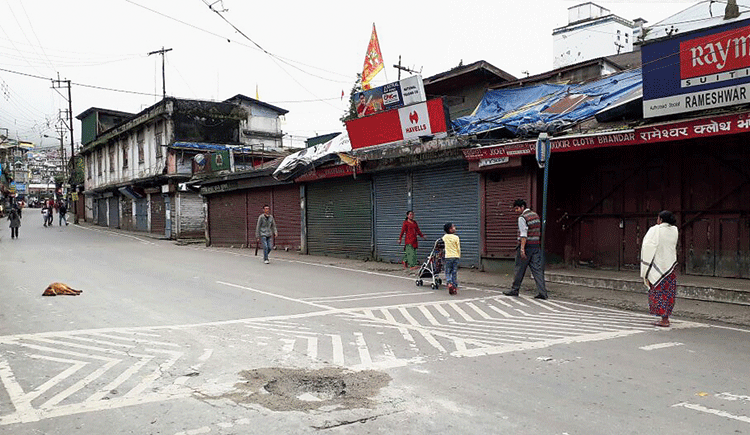An online poll conducted by a Darjeeling-based news portal regarding the December 29 general strike – which has since been withdrawn by the youth wing of the Gorkha Janmukti Morcha’s Binay Tamang camp – suggests 90 per cent of the participants are against shutdowns.
The Gorkha Janmukti Yuva Morcha (Tamang faction) had on December 23 announced a 24-hour general strike in the hills on Sunday to demand Inner Line Permit in the region and Original Inhabitants status for Gorkhas.
On the very same day, Darjeelingtimes.com-Darjeeling News started a poll on its Facebook page asking people to vote on “Strike in Darjeeling on the 29th December, Good or Bad?”
Around 3,100 Internet users took the poll and only 10 per cent thought it was a good idea.
One of the comments read: “Why d hell is there a strike during this tourist season? Who is going to benefit from this strike? Surely not public…”
It was not just the issue of tourism season that was weighing heavy on the minds of people. “Wedding season…winter vacation so we have plans to travel..r we fools again to go for an strike..strike banyo basyo (call a strike uselessly),” another reader commented.
For the hill people, three months of winter vacation of schools means it is time to plan their annual holidays or even go for general medical treatments outside the hills.
The 104-day general strike in 2017 also seems to have made some weary of strikes and its outcome.
The region has had its fair share of strikes since 1986 when the Gorkha National Liberation Front started the statehood agitation.
Mahendra P. Lama, former vice-chancellor of Sikkim University, had on August 16, 2013, said: “In the past 27 years, the hills have been closed for 234 days. But there has been no result. Strikes are not good for the region and the focus for Gorkhaland must be in Delhi.”
On that day, the hills were observing a general strike called by the Morcha, which was then headed by Bimal Gurung.
Taking the 104-day strike in 2017 and the 2013 shutdown, the hills have been closed for more than 300 days in the last three decades.
An hotelier said: “Given the statistics, it is amazing that the tourism industry has still survived.”











